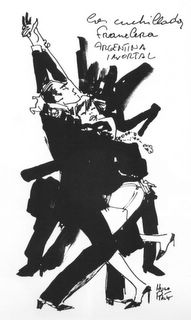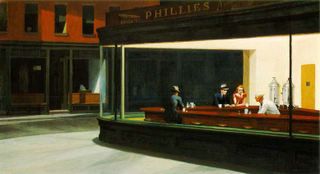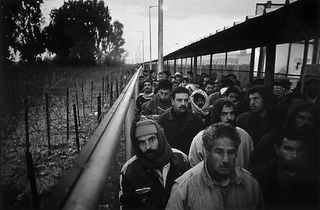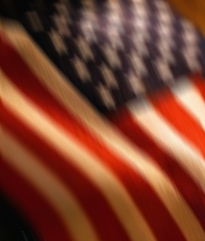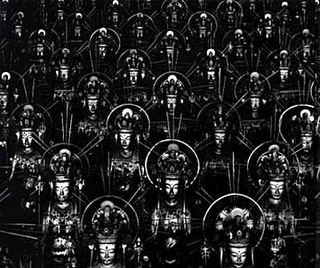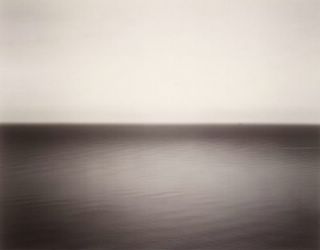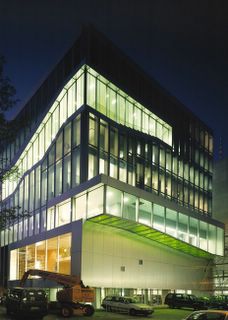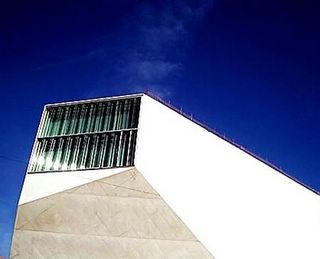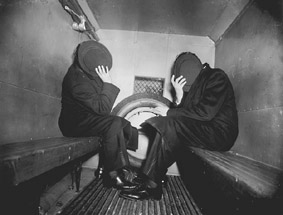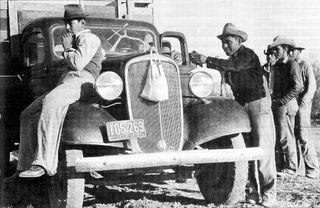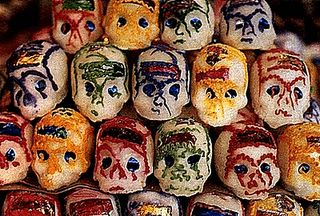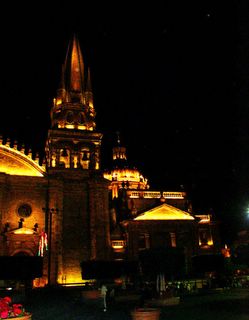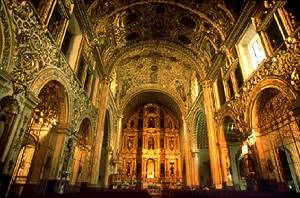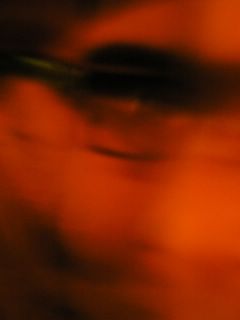O meu amigo Keiser Souza enviou-me uma longa menssagem sobre a MAFIA. Todas as máfias que andam por aí. Fez uma pesquisa e enviou-me a encomenda embrulhada em papel de mercearia. Tudo muito, hush-hush. O meu papel, de editor, foi mínimo e achei que seria preferível a publicação na integra. Keiser, vê lá se para a próxima trabalhas o texto...Numa recente pesquisa sobre o crime organizado credenciados investigadores da Europa descobriram factos que levam a concluir as ramificações em vários países, as suas actividades, meios de financiamento e áreas de influência, aqui fica uma breve mostragem das mais conhecidas organizações:
ITÁLIA
Sícilia – Cosa Nostra
Napoles – Camorra
Apulia – Sacra Corona Unita
Calabria – Ndangheta Calabresa
EUA
Máfia – Ramificações da Cosa Nostra e Camorra (Nova Iorque, Chicago, Los Angeles)
RUSSIA
Solntsevo Organiztsya (Moscovo)
ALBANIA
Kadek (Com ligações ao terrorismo e á luta armada)
New Holy Crown Union
JAPÃO
Yakuza
COLOMBIA
Cartel de Cali (O mais poderoso do pais e que congrega todas os outros carteis)
CHINA
As Triades - Shangai, Macau. Hong Kong (com ligações a cultos e organizações secretas seculares, Amesterdão, Londres, Nova Iorque são algumas das cidades onde a sua presença se faz sentir fora da China).
A Europa é um ponto de cruzamento de todas estas organizações julga-se que nas décadas de 60, 70 e 80 grupos radicais tais como Brigadas Vermelhas, Bader Mheinhoff, IRA ou ETA tenham possuído contactos e financiamentos.
As suas actividades são diversificadas:
Tráfico de estupefacientes, tráfico de armas, tráfico humano (emigração ilegal, prostituição, etc), pornografia, política, corrupção, agiotagem, extorsão, tráfico de orgãos humanos, contrafacção de tabacos e bebidas alcoólicas, contrabando.
"
Operation clean-upPortugal is in the limelight because of a supposedly simple game called football.
A few days before the opening ceremony of EURO 2004, to be staged on the West side of the Iberian Peninsula, their dominating football club Porto won the highest European title at club level as Jose Mario Mourinho’s well-groomed side thrashed Didier Deschamps’ Monaco at Shalke 04 Gelsenkirken stadium in the Champions League final which was staged in midweek.
Porto’s brilliant success, having also won the UEFA Cup the previous May, should be enough to convince football critics that clubs with modest resources can still win honours.
Actually, Porto’s success means a lot more
In a corrupt world, football is hardly spared of scandals. There are far too many stories of corruption which give the game a bad name. In that sense I tend to agree with most of the contents of a recently published book entitled ‘The man who hated football’ written by Will Buckley. Fifteen long years of writing about football, has left him with a great problem. He admits that ‘he hates football, the people who play it, watch it and write about it.’ What has Porto’s win got to do with all this?
Porto’s victory must have served as a much-needed injection for the Portuguese organisers, in their efforts to restore faith in the game, especially at a very delicate period in time. The authorities spent a lot of money on infrastructure, and not solely on the building of seven new stadia and the renovation of three others. Or better airports and smoother roads leading to these centres.
Euro 2004 is a money-spinning venture
It will attract 500,000 tourists and will boost the country’s economy. It is not merely a sporting event. Portugal and its eight cities where the 31 matches will be played will reach the whole world. The image it portrays is of prime importance. The country and its football should be portrayed as cleaner than thou. At the moment they are struggling a bit!
ScandalA month ago, Portuguese police arrested 16 referees and football executives, including the chairman of the country’s league, in a major corruption probe.
The police said officials would be questioned about allegations of match-fixing, including forgery.
Police swooped in ‘Operation Golden Whistle’ after a year-long investigation which involved about 150 officers. League Chairman Valentim Loureiro and the head of the referees’ panel Antonio Pinto de Sousa, were amongst those held in raids on 60 premises. Mr Louriero, a former chairman of the Boavista football club, is also the mayor of the northern town of Gondomar. He was arrested in Oporto and apparently still remains detained. Among the premises searched were the offices of the Portuguese Football Federation (FPF) in Lisbon and the premier league club Sporting Braga.
Louriero forms part of the government in power and is also president of the district commission of the Social-Democratic Party. All are being investigated about a number of scandals which involve matches, referees, false entries in various clubs’ financial books and other crimes.
Portugal could not have had a worse build-up as the country is gearing up to host the 16-nation football tournament in June!
The alleged scandal had everyone connected with the organisation of this prestigious competition, edgy about the outcome, but Porto’s European title has made them proud. It serves as an inspiration for their determined efforts to ensure that Portugal’s image is not tarnished in the run-up to EURO 2004, even though the FPF President Gilberto Madail, said that he was not surprised by the police move, following “insinuations which have been made over the years.”
Police are reported to have speeded up their investigations which also concern accounting irregularities involving players’ wages at five first division clubs, including Benfica. Prime Minister Jose Manuel Durao Barroso declined to comment on the specifics of the investigation, saying simply “I hope everything will be cleared up.”
Despite heavy criticism, he missed going to Mexico earlier on in the week to follow Porto’s success.
There are many who think that the stories have been exaggerated.
Admittedly sports coverage is completely monomaniacal. Given so much space it is inevitable that writers should need to fill it with infantile exaggeration. But not when there is a serious police inquiry involving clubs, officials, referees and players. The matter will still steal the headlines during these days prior the big kick-off.
Unfortunately such scandals in football circles seem to occur at regular intervals.
Anti-mafia police investigations
Recently Italy has again been hit by a betting scandal as anti-mafia police are currently investigating alleged links between clubs and organised crime.
The police are looking into claims that a high number of football clubs have been involved in suspected match-fixing.
The investigation, by a Naples-based anti-mafia unit, started after conversations involving five players were intercepted.
Public prosecutors said that “agreements for fixing matches led to illegal ways of gaining money. The investigations want to prove the involvement of organised crime and the mafia in the proceedings!”
It is interesting to repeat what the President of the Italian Football Federation, Franco Carraro, had to say when asked about the scandal. He said “even among millionaires, one finds cheats and thieves.”
It follows that as there are many millionaires in the football scene there are many cheats and thieves, much to the disgust of the pitiful fan. Another interesting quote comes from the President of the promotion favourites Palermo, Maurizio Zamparini who said “out of every ten footballers, five are honest, three are harmless but two are certainly corrupt.”
You do not have to be a professor of economics to conclude that this general statement means that 20 percent of all professional footballers are corrupt! But Zamparini added “this analysis counts for journalists, club presidents, university professors, professional people, in brief for every category. What I cannot understand is how these few stupid idiots get involved for crumbs, when they earn good money sometimes for producing nothing.”
When reading the replies, yours truly becomes a bit confused and diplomatically avoids getting into serious discussions on such statements. There is hardly any doubt that once serious investigations get underway the situation becomes even more spread and disgusting.
Filippo Beatrice and Giuseppe Narducci who are investigating the cases after a few interrogations got to know that the list of those involved was bigger than what originally thought, as club administrators, more players and at least one referee were directly or indirectly involved.
Bets on Chievo-Reggina and Ascoli-Piacenza were mostly on a drawn result. Betting was suspended. Lo! and behold, the two matches ended goalless! Betting on the Sicilian derby also had to be suspended in good time as the punters fancied a drawn result.
The match ended 1-1. It seems that at least 8 serie A matches were allegedly fixed! (Lecce-Siena 0-0; Chievo-Siena 1-1; Siena-Udinese 1-0; Chievo-Reggina 0-0; Modena-Sampdoria 1-0; and Cheivo-Modena 2-0). Betting receipts belonging to the players under investigation were found.
Among those interrogated one finds Stefano Bettarini of Sampdoria who is married to the popular TV girl Simona Ventura. Between them earn 12m euros a year! They have a villa in porto Cervo and luxury apartments in Viareggio and Milan. Celebrities are always better material for the media than the poor average person. Stefano ‘Il bello’ Bettarini, husband of a popular show-girl, gives him an edge on Antonio Marasco whose partner is an unknown entity, as far as tabloid headlines are concerned.
The Italian Federation has also opened a serious inquiry which is conducted by General Italo Pappa. It will be continued tomorrow and its findings could send Italian football into a turmoil. If these players, officials and referee are found guilty they will also be sanctioned by the federation, besides facing criminal proceedings.
Clubs can also be relegated.
Player’s agents and their fees
Honest football administrators are also worried about football agents who can make enormous sums of money from a handful of phone calls, and who are almost literally laughing all the way to the bank.
Only last Thursday the BBC screened a documentary on a few of Manchester United’s transfer deals. Alex Millar, the reporter behind the documentary, found out what it took for a world-class player such as Jaap Stam to move from United to another club.
It was one huge payment to the manager’s son’s agency by Lazio and, at the other end of the deal, another £750,000 to the manager’s son’s business partner, a Monaco-based agent.
During his four-month investigation, Millar came across startling evidence of general complacency towards agents’ fees and how ‘friends of friends’ pocketed millions. Man Utd admitted paying £13.43million to agents, when last Tuesday they published the internal review into their 21 transfers worth £125million between January 2001 and January 2004.
It will be wrong to assume that such dealings are the prerogative of Manchester United only. Most clubs all over the world play the same game. Most of them are bankrupt. Or are they?
No wonder Will Buckley is not singing anymore. He says that football is a childish pursuit. This is the game’s charm and its limitations, he adds.
Sadly football knows no bounds these days.
‘Operation Clean-up’ is long over due."
"
CALCIO, GERMANIA: MAFIA CROATA DIETRO SCANDALO ARBITROL'arbitro tedesco Robert Hoyzer (25 anni), al centro di un clamoroso scandalo di corruzione per aver falsificato il risultato di varie partite da lui dirette, avrebbe avuto contatti regolari con la mafia croata. Lo scrive nel suo ultimo numero in edicola giovedì il settimanale Stern. A confermarlo alla stessa rivista di Amburgo è stato Harald Stenger, responsabile dei rapporti con i media della Federcalcio tedesca (Dfb). Hoyzer è accusato di aver manipolato almeno cinque partite di calcio, in particolare quella tra Paderborn e Amburgo (21 agosto 2004) relativa al primo turno di Coppa di Germania, vinta dal Paderborn (terza divisione) per 4-2 e che è costata l'eliminazione dalla Coppa dell'Amburgo (Bundesliga). (26/01/2005) (Spr)"
"
CRIMINAL ORGANISATIONSEuropean Mafia
Most apparent characteristics of Euro Mafia are its immediate decision-making, strict rules and strategic movements. They occupy cities, districts, and even streets with the strategies special to themselves. They have members in the high levels of the governments and godfathers lead them.
Euro Mafia carries criminal activities with $500 millions endorsement annually. EDU/Europol thinks that this amount is 600 millions of ECUs. The half of the concerned amount is being washed and injected to legal businesses. This income affects the lives of ordinary people.
Despite cultural, linguistic, and ethnical differences, Russian, Sicilian, Turkish, Chinese, Colombian, Calabria and Albanian mafias work co-operatively for money. They act independently in the streets of Europe and commit every crime for their own benefits. As they are mocking with EU and the decisions of Maastricht Treaty, they earn more then $351 billions annually. This amount is equal to 4.2 of Europe’s annual profit. In other words, Euro Mafia’s income is equal to the five biggest companies as Royal Dutch Shell, Daimler-Benz, Siemens, Volkswagen, and Italian ENI. "
"
CRIMINAL ORGANISATIONSWhat is a criminal organisation?
Action Fields of the Criminal Organisations.
Trans-national Criminal Organisations are interested in every field, which related to their benefits.
Drug trafficking is one of their basic occupations. To find the raw materials, to produce and sell the drugs is the most fruitful field of the organised crime as in this field rivalry is weak and money comes directly to the organisation.
As the drug industry has extended, money laundering reached a high level, as well. It is clear that weapon and drug trafficking are very closely related. Moreover, the dirty money earned by drugs brings more secure lives to the criminal organisations. As they earn more, they became more powerful. This cause and effect relation is the reason of governmental corruption.
Trans-national crime organisations are becoming more interested in illegal immigration. This kind of crime has different dimensions and most apparent one is “worker trafficking.” According to the records, every year, crime organisations bring nearly one million people from poor countries to the rich ones.
With no doubt, most terrifying kind of “human trading” is the “organ trafficking.” There are many important evidences about illegal organ trafficking. Especially, in Russia and Argentine, crime organisations kidnap people and market their organs for millions of dollars. These organs are being sold with counterfeit certificates to the customers in Europe. The most important centres of this market are Germany and Italy, the hearth or EU, the defender of the human rights.
Dirty money laundering is another problem. Money laundering is the method, which the crime organisations use commonly to hide the money they earn from illegal businesses. Drug trafficking is the largest part of the illicit incomes.
The process of money laundering is usually realised in three steps:
The first step is to inject illicit cash into a financial system by using banks or corporations in the countries, which do not have strict or secure banking regulations. In the strict regulated countries, the crime organisations prefer to drive small amounts of money in to the systems. This process is being called as “smurfing.” Smurfing is possibly the most commonly used money laundering method. It involves many individuals who deposit cash or buy bank drafts in amounts under $10,000.
The second step is “layering.” The criminals tear illicit wealth from its source, and layer the money to hinder investigations.
The last method is to conceal the illicit wealth by legal investments with the help of weakly regulated banks of the third world country. Money launderers purchase big-ticket items such as cars, boats and planes or real estate. In many cases launderers may use the asset but will distance themselves by having assets registered in some other name.
The activities of the criminal organisations are not bounded with the ones revealed above. Animal smuggling, smuggling of the historical masterpieces, kidnapping, robbery, cyber terror and information warfare are not mentioned. The reason is not that kind of crimes are less serious but the target of this site is to point out organised crimes that are affecting the internal security of EU countries."
E sobre a sua influência na politicaEnfim muita promiscuidade, muitas duvidas (ou serão quase certezas).
E surpreendentemente (ou não) apanhei esta ligação ancestral a uma conhecida sociedade secreta.
Mazzini Autorizza Furti, Incendi, Avvelenamenti = M. A. F. I. A
(Manzzini -33º Grão Mestre da Maçonaria Italiana - Autoriza Furto Incendio Envenamento)
Five Points of Fellowship (Cinco pontos da Irmandade)
Brother,
1
Foot to foot teaches you that you should, whenever asked, go on a brother's errand, if within the length of your cable-tow, even if you should have to go barefoot and bareheaded.
2
Knee to knee, that you should always remember a Master Mason in your devotions to Almighty God.
3
Breast to breast, that you should keep the Master Mason's secrets, when given to you in charge as such, as secure and inviolable in your breast as they were in his own before communicated to you.
4
Hand to back, that you should support a Master Mason behind his back as before his face.
5
Mouth to ear, that you should support his good name as well behind his back as before his face.
You must conceal all crimes of your brother Masons...and should you be summoned as a witness against a brother Mason be always sure to shield him...It may be perjury to do this, it is true, but you're keeping your obligations.
The committee feels that the link between Cosa Nostra and institutions is mostly through the "Massoneria" (freemasonry): The fundamental terrain on which the link between Cosa Nostra with public officials and private professions was created and reinforced is the Massoneria. The Massoneria bond serves to keep the relationship continuous and organic. The admission of members of Cosa Nostra, even at high levels, in Massoneria is not an occassional or episodical one, but a strategic choice. The oath of allegence to Cosa Nostra remains the pivot point around which "uomini d'onore" (men of honor) are prominently held. But the Massoneria associations offer the mafia a formidible instrument to extend their own power, to obtain favors and privileges in every field: both for the conclusion of big business and "fixing trials", as many collaborators with justice have revealed."
Completo com imagens no “site“:
freemasonrywatch.org -
mafia -
noye
E assim quando tudo começou numa pequena pesquisa de entretenimento e cultura entramos em assuntos bem complexos.
Casos de envolvimento da maçonaria na vida politica portuguesa com lugares de destaque !!!??
Controvérsia "Almeida Santos - medias de massas"
"A manobra "Almeida Santos - mídias de massas" é típica da maçonaria. Utiliza-se uma das técnicas mais importantes, a chamada "controvérsia", que consiste em utilizar actores da casa (neste caso os donos dos media, os jornalistas chave e Almeida Santos A.S.), através dos media alimentar uma pseudo controvérsia.
Assim que os fins são atingidos ou as massas perdem o interesse, cai imediatamente o pano (isto é, os media deixam de mencionar o caso). As finalidades são : desviar a atenção das massas das questões fundamentais (Kosovo, UE - governo mundial, etc), encenar a democracia (suposta liberdade de imprensa), valorizar certos personagens, que assumem o papel dos bons da fita (directores de jornais, etc), mentalizar as massas para a aceitação de técnicas cada vez mais brutais de controle, a que a maçonaria tem que recorrer, desde que o plano para o governo mundial teve um atraso de um ano e se torna cada vez mais difícil controlar as massas com os meios "democráticos" tradicionais.
Quando a finalidade da mentalização implica saltos qualitativos (neste caso as liberdades fundamentais), utiliza-se a técnica do recuo temporário, para diminuir o choque. Vejamos : Em seguida ao ataque aparecem os títulos "A.S. arrepende-se" pouco depois A.S. repete as primeiras afirmações.
Porquê Almeida Santos ? Nada acontece por acaso. A escolha de Almeida Santos deve-se a que : a sua imagem foi vendida durante décadas como "antifascista" e "combatente da liberdade" ocupou o cargo de presidente do orgão que simboliza a democracia (assembleia). Que melhor figura para implantar na cabeça dos portugueses a ideia de que chegou ao fim a "liberdade de imprensa" ? "
Completo em...O que acontece no mundo ecoa em Portugal. A um governo de esquerda sucede-se um governo de direita. Ao Presidente da Assembleia da República, Almeida Santos, membro da maçonaria, sucede-se o Presidente da A.R., Mota Amaral, membro do Opus Dei. Enfim, o hábito.
Utopia
Visitem este “site”:
gayaguys
E por fim afirmações de um magistrado:
"
Juízes do TC Não Sofrem Pressões dos PartidosO Tribunal Constitucional é um tribunal político, dado o modo de nomeação dos seus juízes, dez pela Assembleia da República e três cooptados pelo seus pares?De maneira nenhuma. Todos os tribunais têm qualquer coisa de político. O TC tem uma origem partidária. Percorrendo a sua história, há questões como as nacionalizações, que eram fracturantes na sociedade portuguesa, e decisões a propósito das quais se dizia que estes juízes iriam votar de uma forma e aqueles de outra. Havia coincidências nas antecipações que se faziam. Hoje em dia, é muito difícil distinguir se um juiz eleito por indicação do PS ou outro qualquer vai votar de uma maneira ou de outra.
Há pressões dos partidos sobre os juízes do TC?Nenhumas. Desde o princípio, achei que as ideias que se tinham no exterior sobre o TC não correspondiam ao que se passava cá dentro. Posso garantir que desde que entrei para o TC, em 1998, nunca tive uma palavra seja de quem for. Fui indicado, como é sabido, pelo PS, nunca mais vi a pessoa que me convidou e nunca recebi qualquer espécie de pressão. E o que acontece comigo, posso praticamente garantir que acontece com todos os outros.
Mas há sempre uma afinidade do juiz com a área política que o indicou.
Sim, é natural, quando um partido indica um determinado juiz é porque entende que ele se situa ideologicamente numa área que lhe é próxima.
Houve reticências à sua nomeação para a presidência do TC?A solução de que resultou a minha eleição veio do interior do tribunal. Ninguém estava à espera que o senhor conselheiro Nunes de Almeida falecesse a meio do mandato. Então entendeu-se que era legítimo completar o ciclo com alguém da mesma área política. O TC é muito cioso das suas competências, a lei confere aos juízes o poder de eleger o seu presidente, e, nessa altura, foi muito firme na afirmação desses poderes. Não quer dizer que não tenha havido, do exterior, intenções de ... enfim... de dar uma certa feição a esta eleição. Só que era um movimento exterior ao tribunal, que este não aceitou, numa demonstração de independência e isenção relativamente aos partidos. A minha eleição foi consensual, por unanimidade, o voto é secreto, mas... (risos) sei que houve uma pessoa que não votou em mim, eu próprio.
"Não Tenho Nada Contra a Maçonaria nem Contra a Opus Dei"
Artur Maurício diz que não é maçon mas que não tem "nada contra". Admite a maior visibilidade dos lobbies e pensa que é preciso viver com eles.
Portugal está um país mais corrupto?
Disso só lhe posso dar opiniões como cidadão porque no TC nem me recordo sequer, em termos de constitucionalidade, de me ter passado pela mão um caso de corrupção. "
Entrevista completa:
ajsp
No fim de todas estes excertos de fonte ou origem duvidosa (os dois primeiros, que se assemelham a artigos de opinião), fico com a dúvida de que existem uns "lobbies" que nem sequer são frequentemente falados, terei de dar razão ao pmcb quando colocou no seu post Opus Dei?
